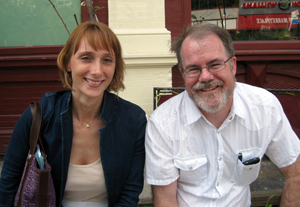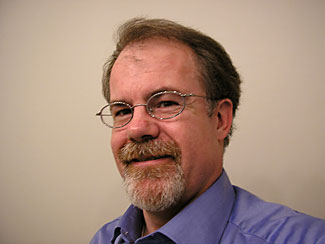Our Sally Field moment: (Most of) you (mostly) like us!
83 percent of you gave us a 5 (26 percent) or 4 (57 percent) out of 5 overall. About 15 percent of you gave us an “eh, you’re all right,” 2 percent of you gave us a 2 out of 5, and one person gave us a 1 (you really hate us!) Also on the plus side, three-quarters describe the blog as both “informative,” and “constructively skeptical,” 58 percent as “encouraging of constructive dialogue and debate” and 53 percent as “entertaining.” Only 1 percent of you think that we are “harming global efforts to help the poor.” In the improvements-to-be-made category, 33 percent of you find us “too predictably negative,” and 17 percent said we are “too confrontational.”
You want more of everything.
All topics had an excess of those who want more on that topic over those who want less. The largest margins were for 1) analysis of aid policies and approaches, 2) analysis of how to achieve economic development, and 3) critical evaluation of specific aid programs or agencies.
You want more positive stories on “what works.”
Another big theme to what you want more of, and what you would change about Aid Watch is—as one of you put it—more “analysis of aid programs that are actually working (there are some, right??)” Well, we hear you, and our response to that is two-fold:
First, the pushback. We wish it weren’t true, but good people in the aid industry do some dumb (ineffective, non-transparent, wasteful, arrogant) things! To identify dumb things to STOP doing is still positive change. When we run positive stories, you correctly sense that we are perhaps a little too arbitrary in our choices of “what works.” We’re trying hard, but the problem here is one of the central points of this blog—there is not enough transparency, evaluation, and accountability to know what’s working.
Second, the concession. We will seek out the positive stories in aid even harder, and we will profile more specific programs (or components of large programs) that have the demonstrated potential to improve the lives of the poor.
Sometimes we’re a little too snarky.
As we have said on this blog before, satire is the weapon of the powerless against the powerful. We deploy it often because the aid establishment is so impervious to change and so resistant to a course correction, no matter how reasonable the case for change is. Satire and sharp words are also a reaction to the bureaucratic buzzwords and evasive language that sometimes passes for real debate on this subject.
Having said this, it is a challenge to find the right balance—to calibrate our tone—and we take your point to be respectful of those we criticize. Although we are dissidents from a mainstream aid establishment, that’s NOT equivalent to thinking that we alone have the exactly correct view – another of our central points is that NONE of us know as much as we think we do. But we do pledge a better effort finding the positive (see above), being humble, even-handed, and giving the targets of our criticism a fair chance to explain themselves.
We could use a makeover.
Some of you commented on our less-than-bleeding-edge design and web functionality. Help is on the way: stay tuned for a redesign of the blog (and our parent page, NYU’s Development Research Institute) coming in early fall.
You don’t like being put in boxes.
Apologies to those of you who bristled at the narrow categories we provided for the ‘describe yourself’ question. We are pleased to discover our readership is even more diverse than we had guessed. In addition to a healthy percentage of students, economists, NGO workers, aid practitioners and consultants, your fellow readers also include entrepreneurs, aid recipients, congressional staffers, journalists, attorneys, technology consultants, bankers, missionaries and “interested bystanders.” Some categories we did not foresee: “Easterly groupie,” “Mets fan,” “hack bureaucrat,” and “Canadian.”
In closing, a sincere thanks to all of you who participated for your feedback and many helpful suggestions.
 From Aid to Equality
From Aid to Equality

 On correcting stereotypes, consider the Willie Horton ad of the presidential election of 1988 of the George Bush, Sr. vs. Michael Dukakis. A political group allied with Bush ran an ad featuring a scary picture of Willie Horton (see also the
On correcting stereotypes, consider the Willie Horton ad of the presidential election of 1988 of the George Bush, Sr. vs. Michael Dukakis. A political group allied with Bush ran an ad featuring a scary picture of Willie Horton (see also the 












